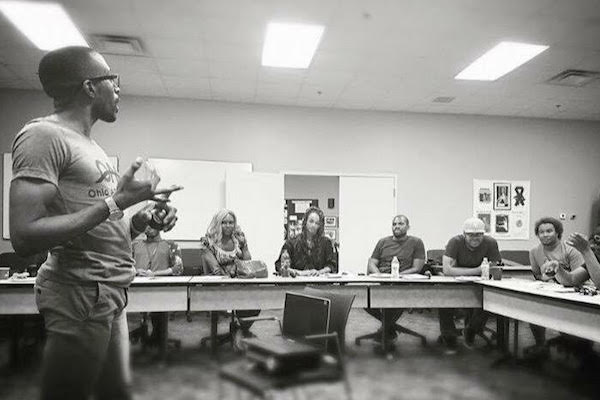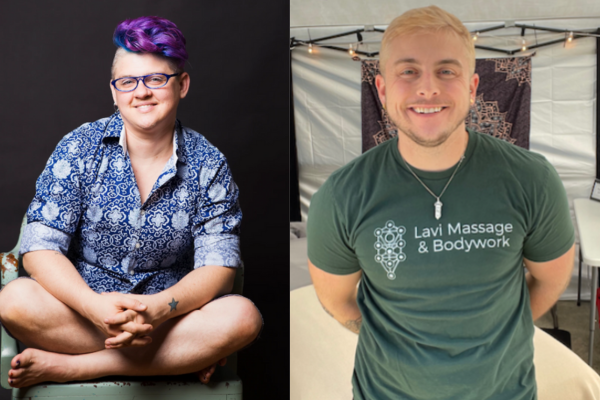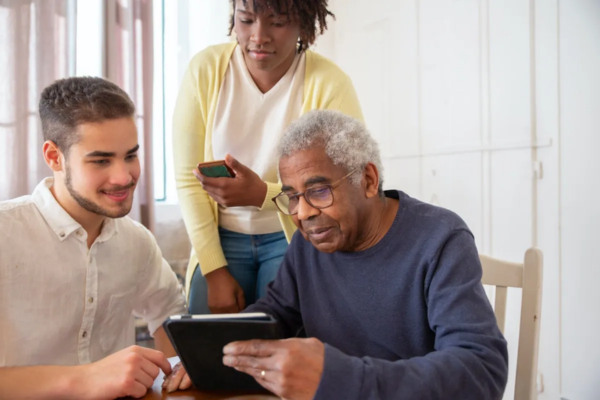
Transgender Candidate Runs in New York Historic Election
June 24, 2017
Musiq Scene: Ariana Castelli
June 27, 2017Days before my twenty-third birthday and two weeks after I was admitted to the hospital for an allergic reaction to an antibiotic, I had a follow-up appointment with my family physician. I remember everything about that day from what I was wearing to how warm the sun felt on my skin. I was feeling better and ready to start my birthday festivities.
When the doctor walked into the exam room I enthusiastically said, “Hey, Dr. Leroy!! How are you??”
With a surprised look on his face he responded with, “Well you seem to be pretty happy given the news you received.”
With a confused look on my face I asked, “What do you mean?”
He uttered words that I thought I would never hear, “Adrian, you have AIDS.” He proceeded to tell me I had a CD4 count of two and a viral load well into the six figures.
At the time, I didn’t need to even know that a CD4 or white blood cell count of 200 or below meant a damaged immune system to comprehend that my life was in danger. A normal CD4 count for someone without HIV ranges from 500–1,600 cells per cubic millimeter of blood – mine were hanging by a thread.
 As he continued to talk, my mind was racing with a million thoughts and questions. What does this mean for me? Am I going to die? What will my mom think? Will anyone love me? Will my family love me? Does God love me? Is this my fault? I left his office and went back to work as if nothing happened. I didn’t want to think about it or think about what my mom, family, church would say or do.
As he continued to talk, my mind was racing with a million thoughts and questions. What does this mean for me? Am I going to die? What will my mom think? Will anyone love me? Will my family love me? Does God love me? Is this my fault? I left his office and went back to work as if nothing happened. I didn’t want to think about it or think about what my mom, family, church would say or do.
That weekend my mom returned from a trip and I knew that I had to tell her. We had the same doctor and I didn’t want to risk her finding out from anyone else. When she came inside we hugged and she asked about my follow-up appointment. I started crying, something I had not done in front anyone since I was a child. With shame, I told her I had been diagnosed with AIDS. I remember the look on her face like it was yesterday. She started crying and what happened next surprised me. She grabbed me in her arms and said, “We will get through this.” That moment changed everything.
Over the next four years, I was hospitalized three times. At the worst of it I was taking 16 medications, weighed a striking 98 pounds, developed seizures, and walked around with a pump that gave me fluids. For one 48-hour period I lost my sight, memory, and mobility. It was a very dark and scary time for me.
I remember laying in the hospital bed and thinking to myself, “This can’t happen to another Black gay man.” It was at that point that I vowed to do whatever it took to reduce HIV transmissions, specifically among young Black gay men.
While transmission rates have leveled off in recent years, Black gay men continue to be disproportionately affected by HIV. A Centers for Disease Control and Prevention (CDC) report released last year estimates that for a Black gay man, the overall lifetime risk of contracting HIV is one in two. Reading reports like this, among other things, reinforces why I do this work. I am determined to do what I can to ensure that the projected data does not manifest.
With access to HIV testing, treatment and support services you can live well with HIV, but this means nothing if we do not address the barriers that many Black gay men face that make them more susceptible to HIV infection and more likely to delay entry into treatment, such as poverty, little to no access to education, incarceration, and mental health issues, among others.
This week we will observe National HIV Testing Day on June 27 – I’m sure you’ll hear and see prevention messages encouraging you to get tested. HIV testing is free, fast, and confidential and it is critical to ending the HIV epidemic in this country.
If I had known more about HIV and the importance of regular testing earlier in my life, I may not have contracted HIV. I know testing and knowing your status can seem scary but the more you know, the more you can do to ensure that you live a long healthy life — positive or negative.
Find an HIV testing site near you today.





